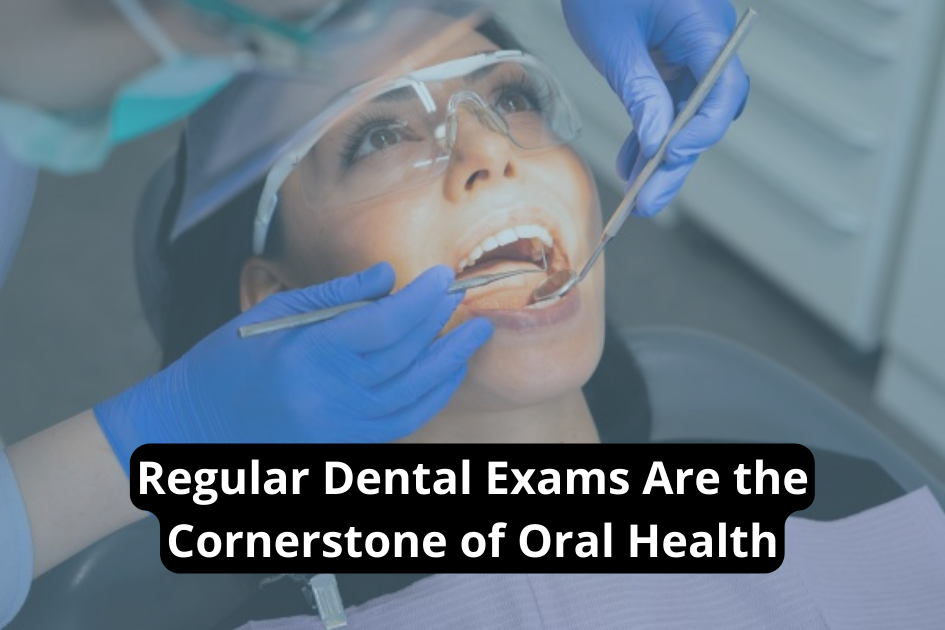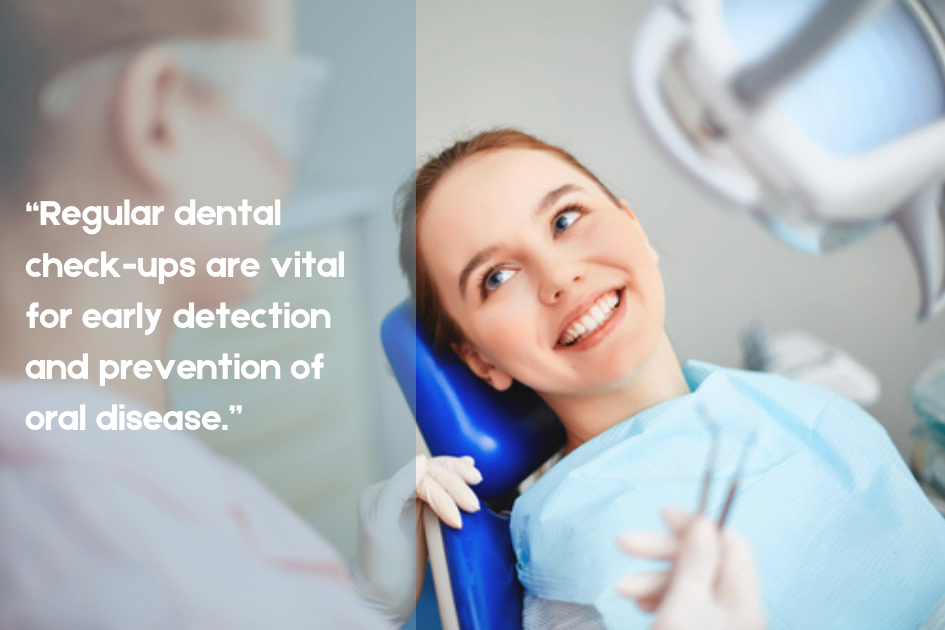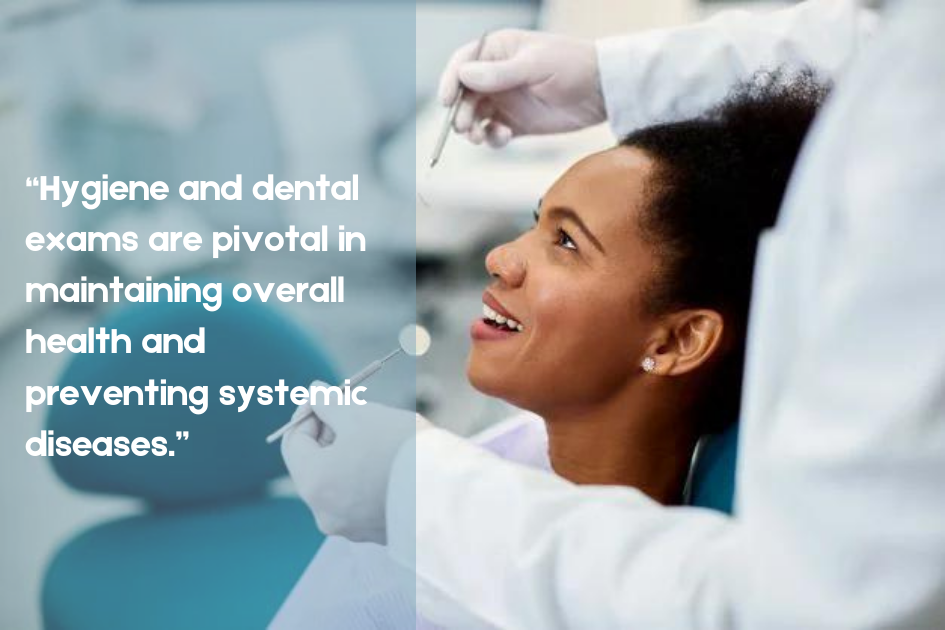
Regular dental check-ups form the foundation of oral health and are crucial in the early identification and prevention of disease.
This article provides a detailed overview of the thorough evaluations that take place during these routine appointments, from visual examinations to professional cleaning sessions.
It highlights the significance of regular dental appointments in preserving overall health and offers valuable guidance on the best dental habits.
Understanding why it is crucial to schedule regular dental examinations is a proactive, vital measure towards achieving excellent oral health.
The Role of Dental Exams in Preventative Care
Many people might undervalue the significance of routine dental exams, but such appointments are vital for preventative oral care. They serve an essential function in the early detection of dental problems.
We, at Prairie Star Dental in Round Rock, TX, stress the necessity for these periodic assessments. They ensure the elimination of plaque and tartar which could cause cavities and gum disease. They also permit oral cancer screenings and evaluation of gum health.
Without these check-ups, initial stages of oral health problems could remain undetected and develop into severe conditions. Scheduling regular appointments enables patients to take a proactive approach to preserving their oral health.
Components of a Comprehensive Dental Exam
A comprehensive dental exam is a complex procedure, incorporating various critical elements. These encompass a thorough visual check of teeth and gums, tests for oral cancer, and the evaluation of gum wellness.

The application of diagnostic X-rays is another central feature, offering essential data on the patient’s overall oral health.
Visual Examination
During a comprehensive dental check-up, a vital part includes visually assessing the health of your teeth and gums to detect any potential decay or gum disease.
Assessment of Teeth: The dentist will evaluate each individual tooth for potential issues such as cavities, cracks, or other forms of damage. The dentist will be on the lookout for:
- Decay in teeth
- Teeth that are chipped or broken
- Wear on tooth enamel
Gum Assessment: The dentist will scrutinize your gums to identify any inflammation, bleeding, or recession. Important features to pay attention to include:
- Color and texture of the gums
- Depth of gum pockets
Screening for Oral Cancer: The dentist will conduct a detailed examination of your mouth, tongue, and throat to find any abnormalities or signs indicative of cancer, which may include:
- Presence of sores or lumps
- Red or white patches
- Issues with chewing or swallowing.
Oral Cancer Screening
A comprehensive dental exam includes an essential element known as an oral cancer screening. This screening involves an exhaustive check of the mouth, tongue, and throat for any signs of abnormality. It holds significant importance due to its potential to enhance the success rate of oral cancer treatment through early detection.
During the examination, the dentist meticulously investigates for asymmetries, swellings, bumps, color patches, ulcerations or other deviations from the norm. Commonly inspected areas include the floor of the mouth and the underside of the tongue. To aid in the identification of abnormal tissues that might escape the naked eye, a special light or dye could be used.
In the event of any suspicious lesions, a biopsy can be performed for a detailed examination. Regular screenings for oral cancer have the potential to be life-saving by detecting cancer at its most treatable stage.
Gum Disease Evaluation
Progressing to another vital element of a comprehensive dental check-up, the gum disease evaluation acts as a key tool for early detection and prevention of periodontal diseases. This exhaustive assessment encompasses:
- Visual Inspection: The dentist examines for indications of redness, inflammation, and bleeding gums.
- Measurement of Gum Pockets: Deep pockets signal advanced gum disease.
- Gum Disease Indicators: Chronic unpleasant breath and gum recession could be potential indicators of periodontal disease.
Regular evaluations enabling timely diagnosis can halt the progression of gum disease, shielding patients from future pain and possible tooth loss.
Extensive studies have established a connection between gum disease and systemic health issues such as heart disease and diabetes, implying these evaluations are not only for oral health but for maintaining overall health.

Examination of Diagnostic X-rays
Often underestimated, the assessment of diagnostic X-rays constitutes a vital element of a thorough dental check-up, granting a deep understanding of concealed dental irregularities that might escape detection during a standard visual check-up.
These high-definition photos grant dental experts the ability to precisely identify decay, tumors, cysts, and bone loss. They also assist in establishing tooth and root positions. The procedure is fast, harmless, and devoid of discomfort. The latest digital X-ray technology even significantly diminishes radiation exposure.
Regular X-ray examinations are crucial in preserving prime oral health as they can aid in identifying potential oral health problems at an early stage when intervention is likely to be straightforward and cost-effective. Hence, diagnostic X-rays hold a critical place in detailed oral evaluations.
Benefits of Regular Dental Exams
Consistent dental examinations play a critical role in detecting dental problems at an early stage, including cavities, gum disease, and even oral cancer. These exams are crucial in preserving good oral hygiene and tracking changes, ensuring prompt identification and resolution of any issues.
Beyond the physical benefits, these routine dental checks also offer patients the comfort and reassurance of knowing they are actively managing their oral health.
Early Detection of Dental Issues
Discerning dental problems at their initial stages is a crucial advantage of frequent dental examinations, which play a vital role in sustaining excellent oral health. These consistent inspections facilitate:
- Prompt Intervention: Dentists can swiftly handle issues such as cavities, gum disease, or oral cancer, minimizing the necessity for extensive procedures.
- Prophylaxis: Habitual cleanings hinder the accumulation of plaque and tartar, the usual culprits for decay and gum disease.
- Therapy: Detecting issues at an early stage often paves the way for simpler, less invasive therapeutic choices, conserving the natural structure of the tooth.
These advantages of frequent dental examinations ensure that your oral health is well-maintained. Dental examinations offer a thorough review of your oral health condition, allowing dentists to track any changes and spot concerning trends promptly.
- Oral Health Surveillance: Dental examinations offer a thorough review of your oral health condition.
- Change Tracking: Frequent appointments enable your dentist to observe alterations in your oral health over a period, spotting any concerning trends promptly.
In addition to monitoring your oral health, dentists can offer guidance and tips on upholding good oral hygiene and averting potential issues.
- Guidance and Tips: Dentists can offer tailored advice on upholding good oral hygiene, and averting potential issues.
Maintaining Good Oral Hygiene
Sustaining excellent oral hygiene, supported by routine dental check-ups, plays a crucial role in maintaining overall health and well-being. Regular dental appointments allow for early identification and management of potential problems such as cavities, gum disease, and oral cancer. This preventive measure not only improves oral health but also reduces the risk of complications related to systemic diseases like diabetes and heart disease, which have been connected to oral health.
Good oral hygiene and dental care also positively influence self-confidence and the overall quality of life. Dentists and dental hygienists possess the necessary skillset and tools to conduct comprehensive cleanings and offer advice on optimal home dental care, emphasizing the significance and advantages of routine dental exams.
Monitoring Changes Over Time
Tracking alterations over time forms an essential aspect of preserving prime oral health, which dental exams provide. This consistent monitoring allows for the early spotting and treatment of potential oral issues. Regular dental checkups enable practitioners to effectively keep an eye on your oral health’s progression and status, culminating in a thorough comprehension that paves the way for personalized care and treatment.
Regular dental exams offer several benefits:
- Spotting Issues Early: Dental checkups have the potential to detect problems such as tooth decay, gum disease, and even early stages of oral cancer.
- A Focus on Prevention: Consistent examinations offer chances for professional cleaning, thereby minimizing the risk of serious dental problems.
- Maintaining Oral Health: Consistent dental appointments aid in preserving oral health and also serve as a stage for educating patients on optimal oral hygiene practices.
These elements, when considered collectively, emphasize the critical role of regular dental exams in protecting your oral health.
Peace of Mind
Besides immediate health advantages, routine dental inspections provide a priceless sense of tranquility, knowing that potential oral health issues are being managed and treated proactively. This comfort stems from the comprehension that these inspections go beyond merely cleaning teeth, they also include monitoring for serious conditions that could include tooth decay, gum disease, and even oral cancer.
These check-ups, when combined with professional cleanings, confirm that any oral health issues are caught at an early stage, enhancing the probability of effective treatment. This anticipatory strategy removes the stress and worry related to unforeseen dental problems.
Maintaining a clean record of oral health through routine dental inspections can considerably enhance one’s self-esteem, with the awareness that their smile is both healthy and radiant.
How Often Should You Have a Dental Exam

Establishing a consistent schedule for dental exams is key to preserving exceptional oral health. The number of dental exams largely hinges on your oral health status, potential risks, and age. The American Dental Association suggests a minimum of one or two check-ups each year for most adults and children.
For individuals with optimal oral health:
Typically, a check-up every six months is enough.
For those at a heightened risk of dental problems:
Visits might need to be more regular. This group includes smokers, individuals with diabetes, expectant mothers, and those suffering from gum diseases or who have poor immune responses to bacterial infections.
For the young ones and adolescents:
It’s critical to have routine exams and cleanings during these periods of fast growth and numerous changes.
Keep in mind, that every person’s oral health is distinctive and might require a custom-made appointment schedule.
The Connection Between Dental Health and Overall Well-being
Preservation of top-notch oral health, encompassing routine dental inspections, acts as a vital element in upholding not only tooth and gum health but also in amplifying overall wellness. Multiple analyses have emphasized an immediate link between oral and systemic health. Subpar dental cleanliness can precipitate conditions encompassing gum disease and tooth decay, escalating the risk of severe health complications such as heart disease and diabetes.
On the flip side, specific systemic diseases, including osteoporosis, could become evident through alterations in oral health. Thus, routine dental examinations are crucial in upholding general health, given they enable prompt detection and handling of possible health issues. Undeniably, dental health remains intertwined with overall wellness.
Conclusion
Essentially, regular dental check-ups serve as a strong bastion for oral health, providing a vigilant defense against potential dental diseases.
They act as a beacon, directing individuals toward the pinnacle of optimal oral health and overall well-being.
Adoption of such preventive measures confirms the ongoing joy in life’s humble joys, revealing that the secret to health and contentment often resides in habitual, though ordinary, self-care actions.

